
The Serene Beauty of Lac Azuéi
Lac Azuéi, also known as Lake Azuéi or Étang Saumâtre, is the largest lake in Haiti, situated near the border with the Dominican Republic. This stunning saltwater lake is surrounded by picturesque mountains and is a haven for bird watchers and nature enthusiasts. The lake's serene blue waters provide a stark contrast to the arid landscape that surrounds it, creating a unique and captivating scene. Visitors to Lac Azuéi can enjoy a variety of activities, from boating and fishing to simply relaxing on the shores and soaking in the natural beauty. The lake is home to a diverse range of wildlife, including flamingos, herons, and other migratory birds, making it a perfect spot for bird watching. The surrounding area also offers opportunities for hiking and exploring the local flora and fauna. Lac Azuéi is more than just a natural wonder; it is also steeped in cultural significance. The lake holds a special place in the hearts of the local communities, who often share legends and stories about its origins and significance. A visit to Lac Azuéi provides not only a chance to connect with nature but also an opportunity to learn about the rich cultural heritage of the region.
Local tips in Lac Azuéi
- Visit during the early morning or late afternoon to catch the best light for photography and to avoid the midday heat.
- Bring binoculars for bird watching; flamingos and other migratory birds are often seen around the lake.
- Consider hiring a local guide to learn more about the cultural significance and legends associated with the lake.
- Pack plenty of water and sunscreen, as the area can get quite hot and there is limited shade.
- If you plan to hike, wear comfortable shoes and be prepared for uneven terrain.
The Serene Beauty of Lac Azuéi
Lac Azuéi, also known as Lake Azuéi or Étang Saumâtre, is the largest lake in Haiti, situated near the border with the Dominican Republic. This stunning saltwater lake is surrounded by picturesque mountains and is a haven for bird watchers and nature enthusiasts. The lake's serene blue waters provide a stark contrast to the arid landscape that surrounds it, creating a unique and captivating scene. Visitors to Lac Azuéi can enjoy a variety of activities, from boating and fishing to simply relaxing on the shores and soaking in the natural beauty. The lake is home to a diverse range of wildlife, including flamingos, herons, and other migratory birds, making it a perfect spot for bird watching. The surrounding area also offers opportunities for hiking and exploring the local flora and fauna. Lac Azuéi is more than just a natural wonder; it is also steeped in cultural significance. The lake holds a special place in the hearts of the local communities, who often share legends and stories about its origins and significance. A visit to Lac Azuéi provides not only a chance to connect with nature but also an opportunity to learn about the rich cultural heritage of the region.
When is the best time to go to Lac Azuéi?
Iconic landmarks you can’t miss
Laferriere Citadel
Discover the historical significance and breathtaking vistas of Laferriere Citadel, a UNESCO World Heritage Site and a symbol of Haitian independence.
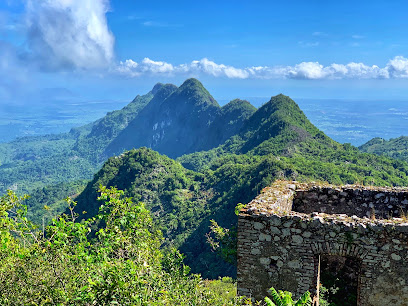
Sans Souci Palace
Experience the majestic ruins of Sans Souci Palace, a historic gem in Milot, Haiti, where the echoes of a royal past meet breathtaking natural beauty.
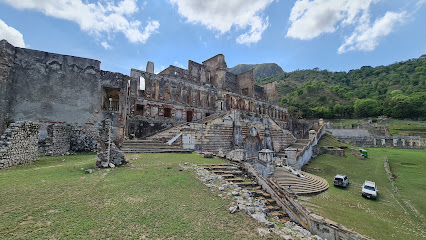
Heroes Monument of Vertières
Discover Haiti's heroic past at the captivating Heroes Monument of Vertières in Cap-Haitien, a memorial park celebrating courage and independence.
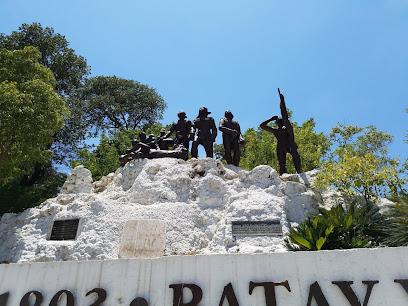
Fort Jacques et Fort Alexandre
Explore Fort Jacques et Fort Alexandre: A Historic Fortress Offering Stunning Views and a Glimpse into Haiti's Rich Heritage.
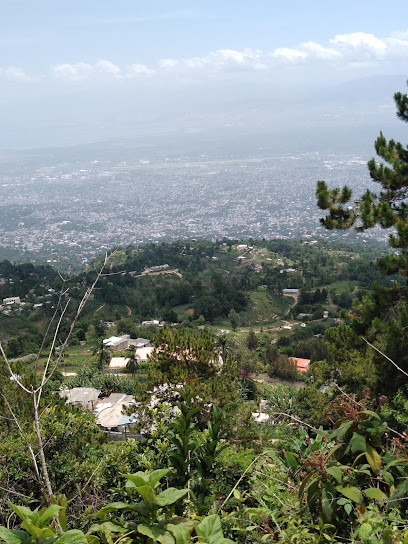
Bassin Bleu
Explore the enchanting Bassin Bleu, a breathtaking natural attraction in Jacmel, Haiti, known for its stunning blue waterfalls and tranquil swimming pools.
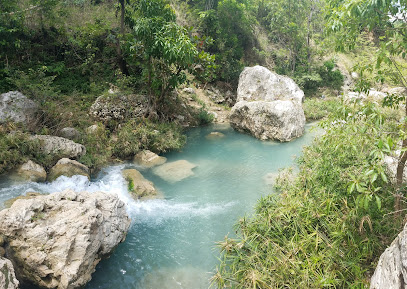
Jimani Border
Explore the vibrant Jimani Border, a bustling gateway between the Dominican Republic and Haiti, rich in culture, commerce, and natural beauty.
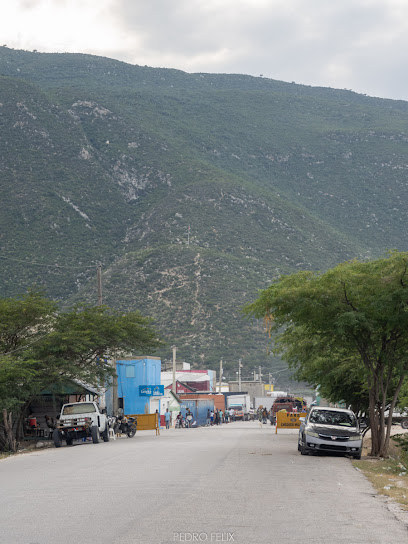
Cayes Botanical Garden
Explore the vibrant flora of Cayes Botanical Garden, a tranquil escape in Les Cayes, Haiti, perfect for nature lovers and curious travelers.
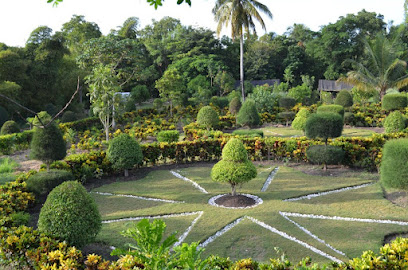
Place d'Armes de la Ville des Gonaïves
Experience the vibrant energy and rich culture of Gonaïves at Place d'Armes, a lively amusement center filled with local charm and unforgettable moments.
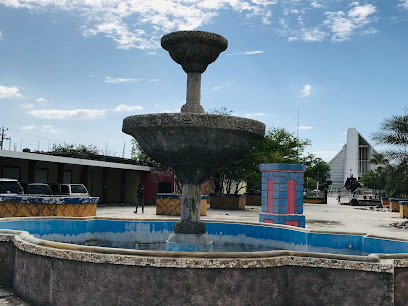
Sainte Anne Church
Explore the serene beauty and cultural richness of Sainte Anne Church, a must-visit Catholic church in Port-au-Prince, Haiti.
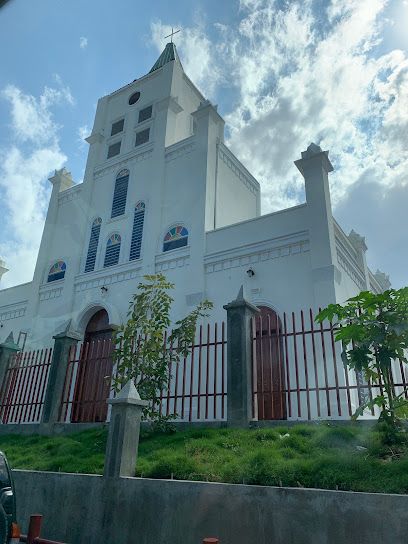
Lake Azuei
Explore the stunning landscapes and vibrant culture of Lake Azuei, a serene Caribbean oasis perfect for relaxation and adventure.
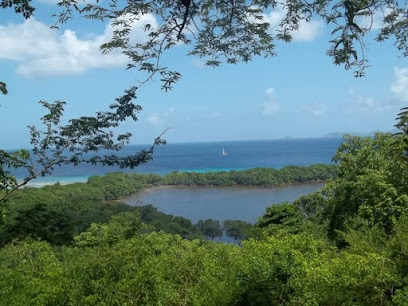
Cave Grotte Marie-Jeanne
Discover the breathtaking Cave Grotte Marie-Jeanne in Port-a-Piment, Haiti – a must-visit for adventurers and nature lovers seeking unique underground experiences.
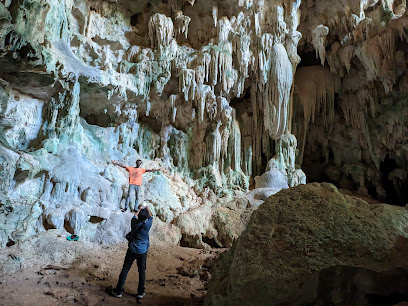
Fort de Oliviers
Explore the historical Fort de Oliviers in Saint-Louis-du-Sud, a captivating site revealing Haiti's rich heritage and stunning coastal views.
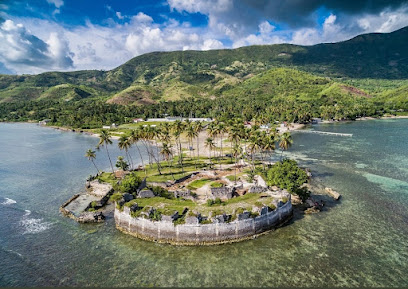
Coterelle Breeze
Discover the tranquil beauty of Coterelle Breeze, a charming bed and breakfast in Jacmel, Haiti, perfect for a serene getaway amidst nature and culture.
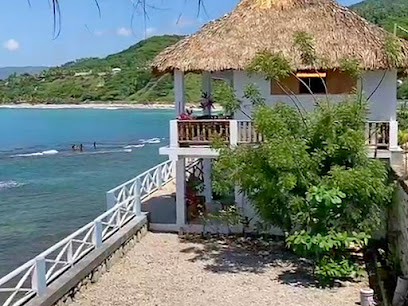
Kokoye Beach
Experience the serene beauty of Kokoye Beach in Petit Goave, Haiti, where golden sands meet vibrant culture and endless adventure.
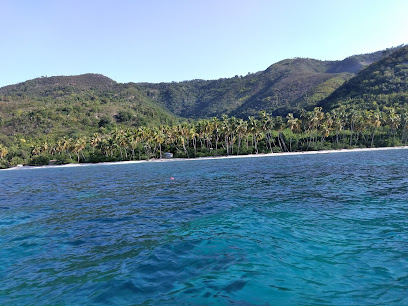
Dragon’s Tail Coaster
Discover the excitement of Dragon’s Tail Coaster in Labadie, a thrilling summer toboggan run offering breathtaking views and family-friendly fun.
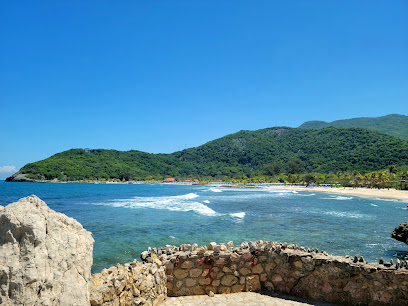
Unmissable attractions to see
Chutes de Saut d'Eau, Centre, Haiti
Experience the breathtaking beauty of Chutes de Saut d'Eau, a stunning waterfall in Haiti, where nature's splendor meets rich cultural heritage.
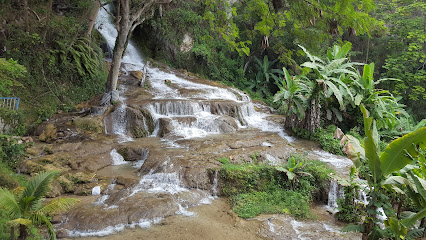
Tour 2004 Bicentennial Monument
Explore the stunning 2004 Bicentennial Monument in Port-au-Prince, a symbol of Haiti's independence and rich cultural heritage.
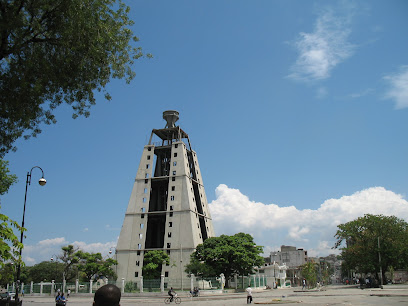
Source Zabeth
Experience the serene beauty of Source Zabeth, a captivating nature preserve in Bonnet, Haiti, perfect for nature lovers and outdoor enthusiasts.
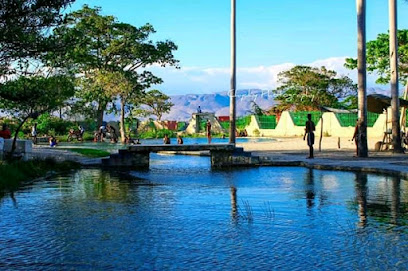
Complexe loisir de turgeau
Experience the vibrant culture and leisure activities at Complexe Loisirs de Turgeau in Port-au-Prince, a perfect family-friendly tourist destination.
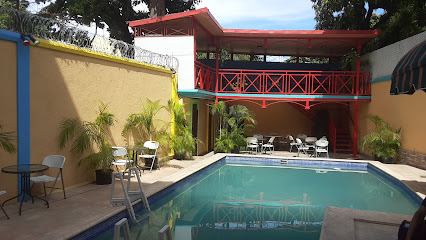
national d'Haïti Botanical Garden
Discover the lush biodiversity and serene landscapes of the National d'Haïti Botanical Garden, a peaceful retreat in Ganthier, Haiti.
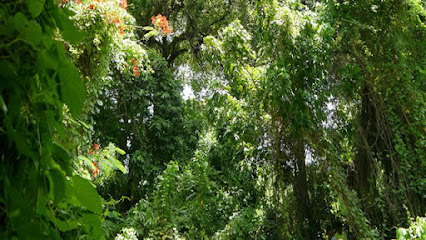
Place des Martyrs
Explore the rich history and vibrant culture at Place des Martyrs, a poignant tribute in the heart of Port-au-Prince, Haiti.
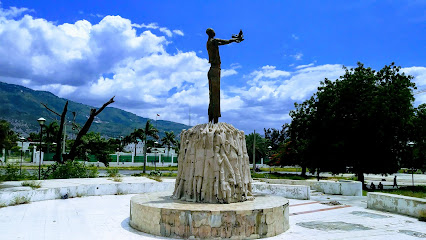
Cascade piten lefèvre
Explore the stunning natural beauty of Cascade Piten Lefèvre, a hidden gem in Kenscoff, Haiti, where waterfalls meet lush landscapes.
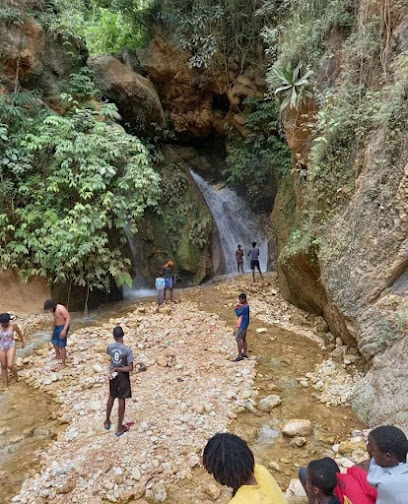
Baz 200 pyas
Experience the vibrant local culture and stunning scenery at Baz 200 pyas, a must-visit tourist attraction in Belle Anse, Haiti.

Lagon des huitres, 3 Jan 2023
Experience the serene beauty of Lagon des Huitres, a hidden lagoon in Belle Anse, offering breathtaking views and a peaceful escape into nature.
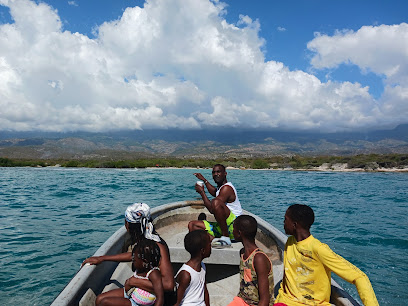
Woodson gerimaire
Explore Woodson Gerimaire: A vibrant tourist attraction in Durocher, Haiti, showcasing rich culture and stunning landscapes.

Cocteau
Experience the serene beauty of Cocteau Park in Thomazeau, a perfect retreat for nature lovers and families seeking tranquility in Haiti.

Gran Tou
Discover the serene beauty of Gran Tou, a tranquil garden in Thomazeau, perfect for relaxation and a peaceful escape into nature's embrace.

FOIRE DE LA PRODUCTION LOCAL
Explore the Foire de la Production Local in Thiotte for an authentic taste of Haitian culture, crafts, and cuisine.
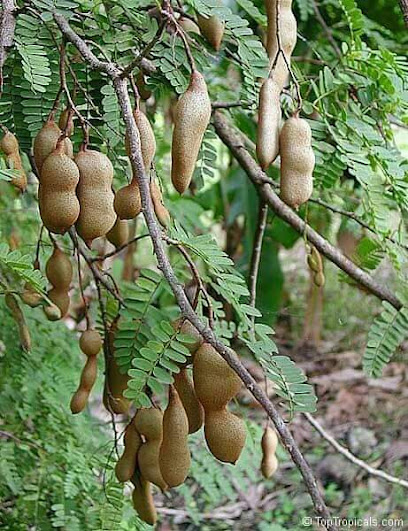
Fond jean noel
Explore the breathtaking beauty and rich culture of Fond Jean Noel, a hidden tourist attraction in Haiti that promises unforgettable experiences.

Carrefour Diviyon
Experience the vibrant culture, rich heritage, and breathtaking beauty of Carrefour Diviyon, a must-visit tourist attraction in Haiti.
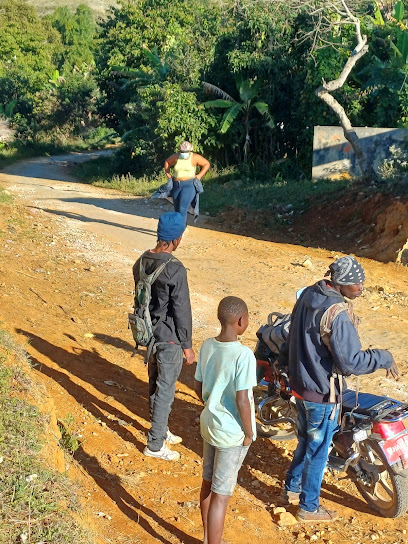
Essential places to dine
Kokoye Bar & Grill
Experience the essence of Haitian cuisine at Kokoye Bar & Grill in Port-au-Prince, where vibrant flavors meet lively ambiance.
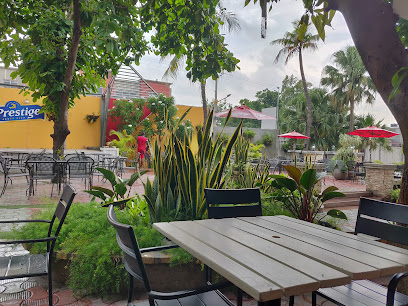
Lakay Restaurant
Discover authentic Haitian cuisine at Lakay Restaurant in Cap-Haitien, where every dish tells a story and every bite is a celebration.
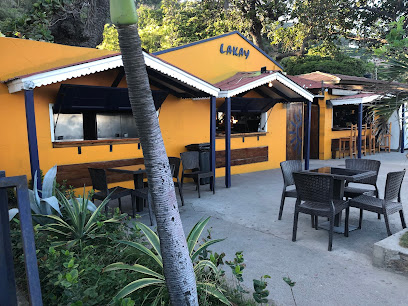
Lakay Bar Restaurant
Discover the flavors of Haiti at Lakay Bar Restaurant in Cap-Haitien - where every meal tells a story.
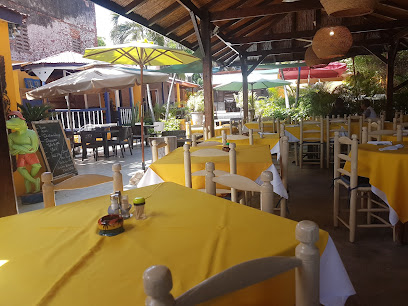
Portofino
Experience authentic Italian cuisine at Portofino in Petion Ville, where every dish tells a story of culinary tradition.
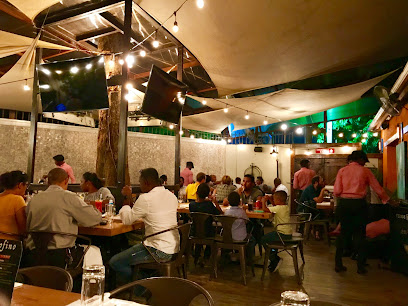
Boukanye
Experience authentic Haitian flavors at Boukanye in Cap-Haitien - where every meal tells a story.
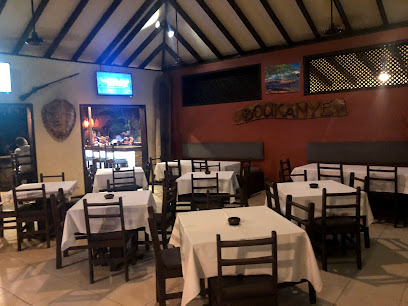
CAP DELI
Discover authentic Haitian flavors at Cap Deli in Cap-Haitien - where every meal tells a story.
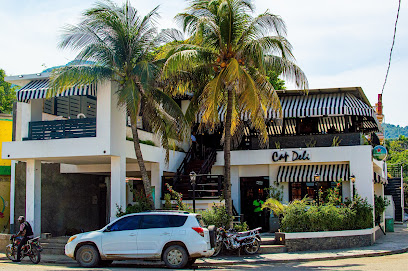
Magdoos Restaurant
Experience authentic Lebanese cuisine at Magdoos Restaurant in Petion-Ville - where every dish tells a story of tradition and flavor.
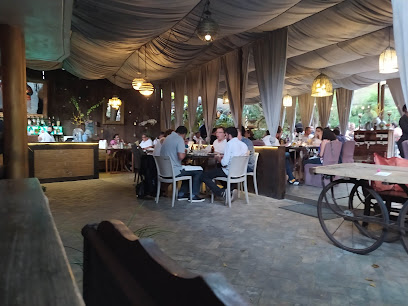
Asu Rooftop Lounge
Experience breathtaking views and exquisite cocktails at Asu Rooftop Lounge in Port-au-Prince's vibrant nightlife scene.
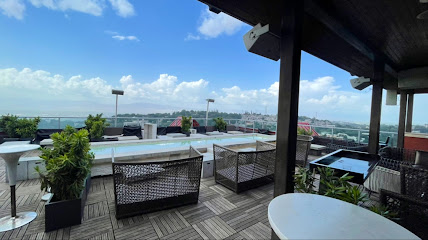
Fior Di Latte
Experience authentic Italian cuisine infused with Haitian flavors at Fior Di Latte in Petion-Ville.
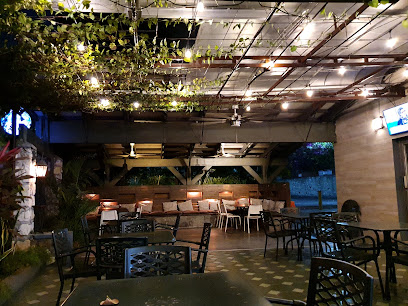
Hotel Cyvadier
Discover culinary excellence at Hotel Cyvadier – where every meal tells a story amidst breathtaking Caribbean views.

La Fouchèt
Experience authentic Haitian flavors at La Fouchèt, a must-visit restaurant in Port-au-Prince showcasing traditional dishes and warm hospitality.
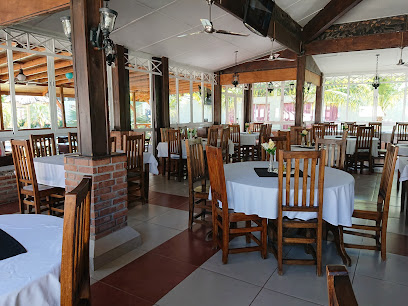
Aioli Restaurant
Discover culinary excellence at Aioli Restaurant in Petion-Ville – where Haitian flavors meet global cuisine for an unforgettable dining experience.
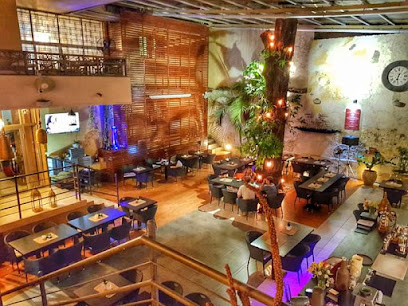
Auberge du Picolet
Experience authentic Haitian hospitality at Auberge du Picolet, your gateway to exploring Cap-Haïtien's rich history and stunning scenery.

Papaye
Experience fine dining at Papaye in Petion-Ville—where local flavors meet international culinary artistry for an unforgettable meal.
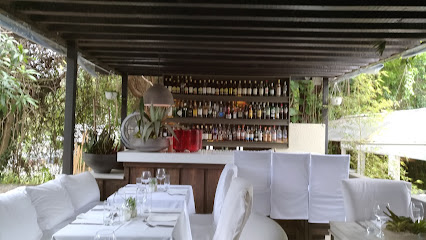
Executive Villas
Discover unparalleled comfort at Executive Villas in Port-au-Prince – your perfect extended stay hotel amidst Haiti's vibrant culture.
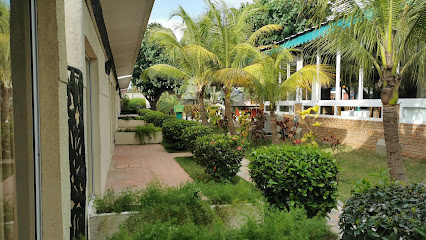
Markets, malls and hidden boutiques
Kajafoly
Discover Kajafoly in Port-au-Prince, a treasure trove of clothing, fashion accessories, and spiritual supplies reflecting the vibrant Haitian culture.
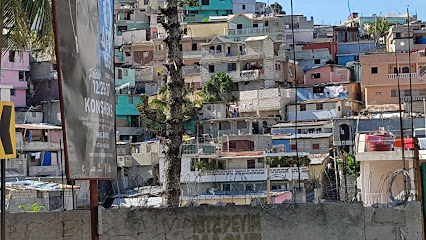
Laguilou Boutique
Explore the exquisite Laguilou Boutique in Port-au-Prince for handcrafted jewelry and unique gifts that embody the spirit of Haitian artistry.
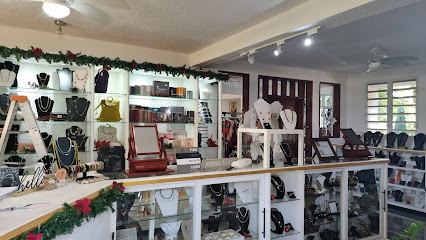
Emporio Supermarket
Experience the essence of Haitian culture at Emporio Supermarket, your gateway to local flavors and daily life in Ganthier.

Lakou Lakay Boutique
Discover unique Haitian crafts and fashion at Lakou Lakay Boutique in Petion-Ville, a vibrant hub of local artistry and culture.
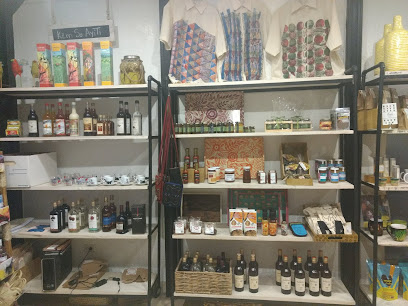
Douvanjou
Explore Douvanjou in Port-au-Prince for unique Haitian gifts and authentic local crafts that capture the essence of Haitian culture.

Cadeaux de Dieu
Discover unique Haitian gifts and support local artisans at Cadeaux de Dieu in Port-au-Prince, a must-visit for culture-loving tourists.

Lory boutique
Experience the essence of Haiti at Lory Boutique, where local flavors and friendly service create an unforgettable grocery shopping adventure.
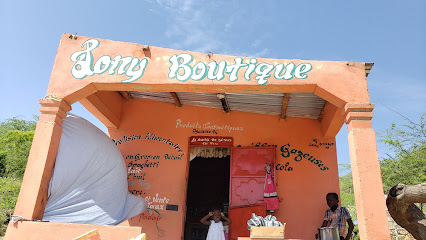
Shop de Tailleur
Discover unique fashion at Shop de Tailleur in La Source, where local craftsmanship meets vibrant style in the heart of Haiti.

Caradeux
Explore the vibrant culture of Haiti at Caradeux Gift Shop, where unique handcrafted treasures await every traveler.

Sody Multi Sevices
Explore the vibrant shopping scene at Sody Multi Services in Fond Parisien, where local culture meets diverse shopping options.
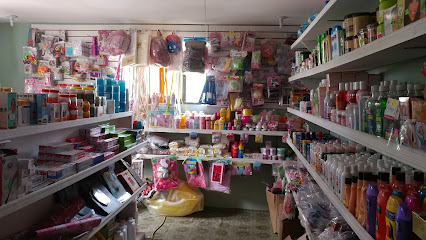
Gebo quincaillerie
Explore Gebo Quincaillerie in La Source, Haiti, for an authentic experience of local craftsmanship and a diverse selection of building materials.
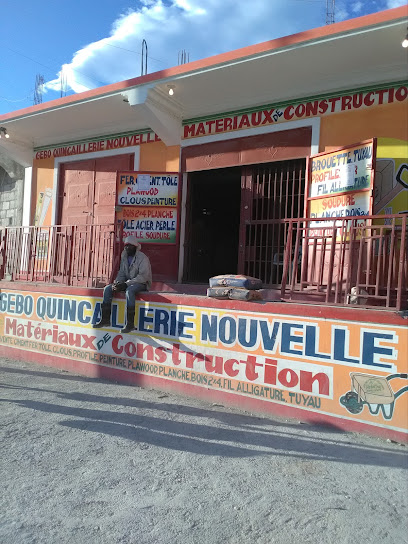
Katie Store
Discover unique local crafts and authentic souvenirs at Katie Store in Croix-des-Bouquets, a must-visit gift shop for every traveler.
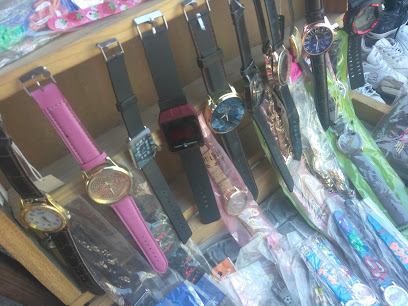
BOIS DE MIEUX
Explore Bois de Mieux, La Source's vibrant electronics store, offering unique gadgets and local craftsmanship in Haiti's tech scene.

AZ Boutique
Experience the vibrant shopping scene at AZ Boutique in Port-au-Prince, where local craftsmanship meets an unforgettable retail journey.

Mrs Nana la charmante
Explore Mrs Nana la charmante in Ganthier for unique Haitian crafts and a taste of local culture, perfect for memorable souvenirs.

Essential bars & hidden hideouts
Asu Rooftop Lounge
Discover the elegance of Asu Rooftop Lounge, where luxury meets stunning views in Port-au-Prince's vibrant nightlife scene.
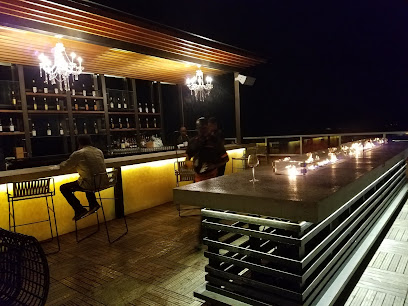
Goose Bar
Discover Goose Bar in Port-au-Prince: A lively haven for refreshing drinks, socializing, and unforgettable nightlife experiences.
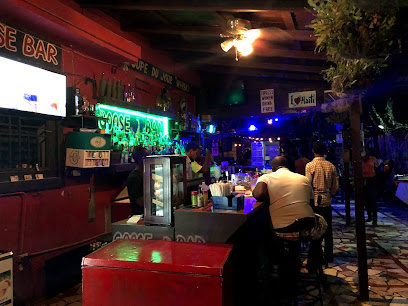
Viche Lounge Bar and Restaurant
Discover the vibrant flavors and lively ambience of Viche Lounge Bar and Restaurant in Port-au-Prince, offering a unique blend of local and international cuisine.
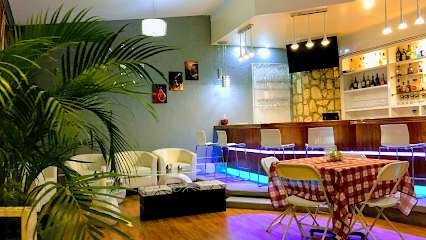
Friendship Bar Variétés Plus
Discover the vibrant nightlife and local flavors at Friendship Bar Variétés Plus in Port-au-Prince, a must-visit for every traveler.
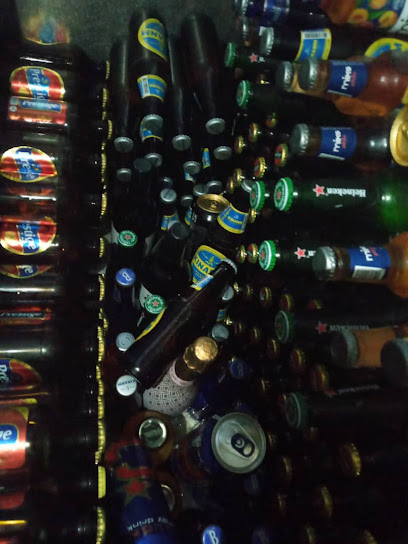
Oceane Bar And Grill
Discover the vibrant flavors of Haiti at Oceane Bar And Grill, where the Caribbean meets culinary delight in a breathtaking coastal setting.
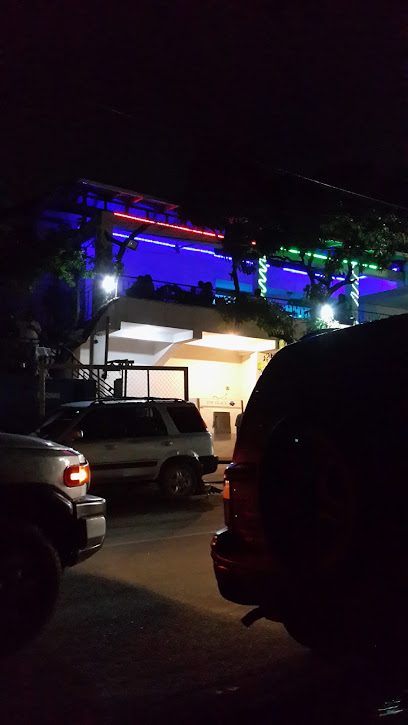
Kay T-Ka Bar Resto
Discover the heart of Croix-des-Bouquets at Kay T-Ka Bar Resto, where live music and exquisite cuisine create an unforgettable experience.

Adonaï Shop , Auto Parts Et Bar Resto
Experience local flavors and warm hospitality at Adonaï Shop, a unique restaurant in La Source blending culinary delights with a touch of local charm.
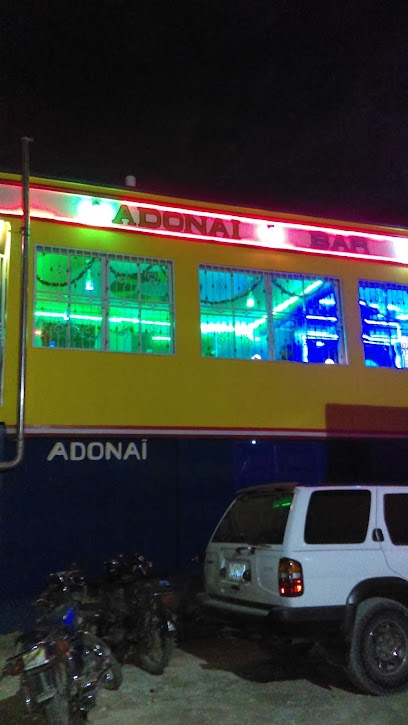
Enjoy Bar
Discover the vibrant atmosphere and local flavors at Enjoy Bar, a must-visit destination for tourists seeking relaxation and fun in Haiti.

La Sagesse Meli Melo
Experience the heartbeat of La Source at La Sagesse Meli Melo, where live music meets local culture in a vibrant atmosphere.

Family Bar Resto
Discover the lively Family Bar Resto in Source Colas for unforgettable live music and delicious local cuisine in a vibrant atmosphere.

Le Refuge Bar Resto
Discover the flavors and vibrant atmosphere of Le Refuge Bar Resto in Port-au-Prince, where local culture meets delightful cuisine.

Amazing Grace Bar
Discover the vibrant nightlife at Amazing Grace Bar in La Source, where local flavors and lively music create an unforgettable experience.
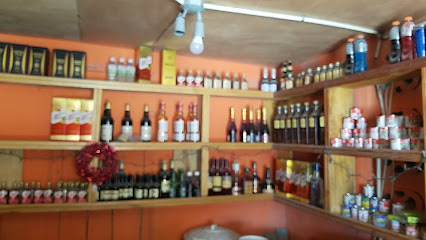
Dada Bar Restaurant
Experience the rich flavors of local cuisine at Dada Bar Restaurant in Nan Do Epidor, a must-visit for every food enthusiast.

Mont Carmel Boutique
Experience the charm of Haitian culture at Mont Carmel Boutique, the perfect bar for tourists seeking relaxation and local flavors in Fond Parisien.

Local Phrases about Lac Azuéi
-
- HelloBonjou
[bon-zho] - GoodbyeOrevwa
[o-rev-wa] - YesWi
[wee] - NoNon
[non] - Please/You're welcomeTanpri
[tan-pree] - Thank youMèsi
[meh-see] - Excuse me/SorryPadon
[pa-don] - How are you?Kijan ou ye?
[kee-zhan oo yay] - Fine. And you?Byen. E ou?
[byen. ay oo] - Do you speak English?Èske ou pale angle?
[es-kuh oo pal ang-lay] - I don't understandMwen pa konprann
[mwen pa kohn-pran]
- HelloBonjou
-
- I'd like to see the menu, pleaseMwen ta renmen we meni an, tanpri
[mwen tah ren-men weh meh-nee an, tan-pree] - I don't eat meatMwen pa manje vyann
[mwen pa manj vyan] - Cheers!Santé!
[san-tay] - I would like to pay, pleaseMwen ta renmen peye, tanpri
[mwen tah ren-men pay-yay, tan-pree]
- I'd like to see the menu, pleaseMwen ta renmen we meni an, tanpri
-
- Help!Edem!
[ay-dem] - Go away!Ale!
[ah-lay] - Call the Police!Rele Polis la!
[reh-lay poh-lees lah] - Call a doctor!Rele yon doktè!
[reh-lay yohn dohk-tay] - I'm lostMwen pedi
[mwen peh-dee] - I'm illMwen malad
[mwen mah-lad]
- Help!Edem!
-
- I'd like to buy...Mwen ta renmen achte...
[mwen tah ren-men ach-tay] - I'm just lookingMwen jis gade
[mwen zhee gah-day] - How much is it?Konbyen li ye?
[kon-byen lee yay] - That's too expensiveSa twò chè
[sa twah chay] - Can you lower the price?Eske ou ka diminye pri a?
[es-kuh oo kah dee-meen-yay pree ah]
- I'd like to buy...Mwen ta renmen achte...
-
- What time is it?Kisa lè li ye?
[kee-sah lay lee yay] - It's one o'clockLi senk
[lee say-k] - Half past (10)Minit pre dis
[mee-nee pray dee] - MorningMaten
[mah-ten] - AfternoonApremidi
[ah-pray-mee-dee] - EveningAswe
[ah-sway] - YesterdayYe
[yay] - TodayJodi a
[zho-dee ah] - TomorrowDemenn
[day-menn] - 1Yon
[yohn] - 2De
[day] - 3Twaz
[twayz] - 4Kat
[kaht] - 5Senk
[say-k] - 6Sis
[sees] - 7Set
[set] - 8Uit
[weet] - 9Nèf
[nef] - 10Dis
[dee]
- What time is it?Kisa lè li ye?
-
- Where's a/the...?Kote yon...
[koh-tay yohn] - What's the address?Ki adres la?
[kee ah-dres lah] - Can you show me (on the map)?Eske ou ka montre mwen (sou kat la)?
[es-kuh oo kah mohn-tray mwen (soh kat lah)] - When's the next (bus)?Ki lè pwochen la ye?
[kee lay pwosh-en lah yay] - A ticket (to ....)Yon tikè (pou ....)
[yohn tee-kay (poo)]
- Where's a/the...?Kote yon...
History of Lac Azuéi
-
Lac Azuéi, also known as Étang Saumâtre, is the largest lake in Haiti. It is a brackish water lake that lies in the Cul-de-Sac Depression, a geological formation created by tectonic movements. This depression is part of the larger Hispaniola Trough, which is a key feature in the seismic activity of the region.
-
Before European colonization, the area around Lac Azuéi was inhabited by the Taíno people. They referred to the lake as 'Jaguana'. The Taíno were skilled agriculturalists and fishermen who relied on the lake for sustenance. Archaeological findings, including pottery and tools, provide evidence of their longstanding presence in the region.
-
During the colonial period, the fertile lands surrounding Lac Azuéi were converted into sugar plantations by the French. The labor-intensive sugar industry relied heavily on the exploitation of enslaved Africans. These plantations were pivotal in the economic development of the colony of Saint-Domingue, which later became Haiti.
-
The Haitian Revolution (1791-1804) profoundly affected the area around Lac Azuéi. Enslaved Africans and free people of color rose against the French colonial government, leading to the establishment of the first independent Black republic. The lake's remote location provided a strategic refuge and meeting point for revolutionaries planning attacks against colonial forces.
-
In recent years, Lac Azuéi has faced significant environmental challenges. Due to deforestation and poor land management, sedimentation has increased, affecting the lake's water quality and ecosystem. Additionally, the lake has expanded in size, encroaching on nearby communities and agricultural lands. These changes have prompted local and international efforts to address environmental sustainability in the region.
-
Lac Azuéi holds cultural significance in modern Haiti, serving as a symbol of natural beauty and resilience. The lake is a popular spot for local festivities and recreational activities, such as fishing and bird-watching. It is also a site for community gatherings and traditional ceremonies that celebrate Haiti's rich cultural heritage.
-
Lac Azuéi is located near the border between Haiti and the Dominican Republic. This proximity has fostered both cooperation and tension between the two nations. The lake's waters and surrounding lands are shared resources that require joint management to address issues like water usage, fishing rights, and environmental protection. Collaborative efforts have been made to promote sustainable development and peace in the border region.
Lac Azuéi Essentials
-
Lac Azuéi, also known as Étang Saumâtre, is located in the Ouest Department of Haiti, near the border with the Dominican Republic. The nearest major airport is Toussaint Louverture International Airport in Port-au-Prince, which is approximately 40 kilometers away. From Port-au-Prince, you can take a taxi, rental car, or a local bus (tap-tap) to reach Lac Azuéi. The journey typically takes around 1 to 1.5 hours by road.
-
Once at Lac Azuéi, transportation options include walking, local taxis, and tap-taps (shared minibuses). Renting a car can be a convenient way to explore the area at your own pace. Be aware that roads can be rough, so a vehicle with good ground clearance is advisable.
-
The official currency in Haiti is the Haitian Gourde (HTG). US dollars are also widely accepted. Credit cards are accepted in some hotels and larger restaurants, but it is advisable to carry cash, especially in smaller establishments and rural areas. ATMs are available in Port-au-Prince, but may be scarce near Lac Azuéi, so it is wise to withdraw sufficient cash before leaving the city.
-
While Lac Azuéi and its surrounding areas are generally safe for tourists, it is advisable to take standard precautions. Avoid traveling alone at night and be cautious in unfamiliar areas. Petty crime, such as pickpocketing, can occur, particularly in crowded places. The areas around the border with the Dominican Republic can have higher crime rates, so exercise extra caution.
-
In case of emergency, dial 114 for police assistance and 118 for medical emergencies. It is recommended to have travel insurance that covers medical emergencies. For minor health issues, there are pharmacies in nearby towns, but for more serious conditions, you may need to go to medical facilities in Port-au-Prince.
-
Fashion: Do dress modestly, especially when visiting local communities. Avoid wearing flashy jewelry. Religion: Do respect local customs and traditions. Many locals practice Vodou or Christianity, so be respectful when discussing religious topics. Public Transport: Do be respectful and patient when using tap-taps. Don't haggle excessively with drivers. Greetings: Do greet people with a friendly 'Bonjour' or 'Bonsoir.' Shaking hands is common. Eating & Drinking: Do try local dishes and fresh fish from the lake. Don't drink tap water; always opt for bottled water.
-
To experience Lac Azuéi like a local, visit during the early morning or late afternoon when the light is perfect for photography. Engage with local fishermen who are often willing to share stories and may offer boat rides on the lake. Don't miss the opportunity to try freshly caught fish prepared in local styles. Weekends often see local families picnicking by the lake, which can be a great cultural experience.
Trending Landmarks in Lac Azuéi
-
Laferriere Citadel
-
Sans Souci Palace
-
Heroes Monument of Vertières
-
Fort Jacques et Fort Alexandre
-
Bassin Bleu
-
Jimani Border
-
Cayes Botanical Garden
-
Place d'Armes de la Ville des Gonaïves
-
Sainte Anne Church
-
Lake Azuei
-
Cave Grotte Marie-Jeanne
-
Fort de Oliviers
-
Coterelle Breeze
-
Kokoye Beach
-
Dragon’s Tail Coaster
Nearby Cities to Lac Azuéi
-
Things To Do in Port-au-Prince
-
Things To Do in Hinche
-
Things To Do in Jacmel
-
Things To Do in Saint-Marc
-
Things To Do in Gonaïves
-
Things To Do in Cap-Haïtien
-
Things To Do in Jarabacoa
-
Things To Do in Les Cayes
-
Things To Do in Puerto Plata
-
Things To Do in Santo Domingo
-
Things To Do in Jérémie
-
Things To Do in Samana
-
Things To Do in Salt Cay
-
Things To Do in La Romana
-
Things To Do in South Caicos





